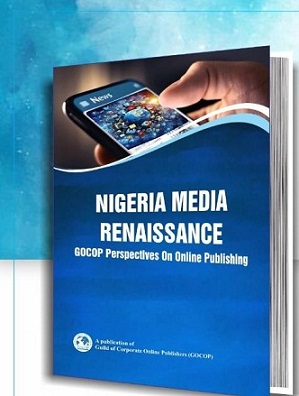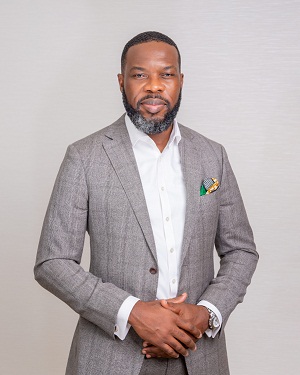SEC Sounds Alarm On Ponzi Schemes, Calls For Vigilance To Safeguard Investors, Economy

The Securities and Exchange Commission (SEC) has sounded a renewed warning on the dangers of Ponzi schemes, highlighting their devastating impact on investor confidence, financial stability, and the Nigerian capital market.
This was the central theme of a paper titled “Ponzi Schemes: Avoiding the Pitfalls of Illegality” presented by Head of the Enforcement Department of the SEC, Dr. Sa’ad Abdulsalam at the Capital Market Enlightenment Programme organized by the Capital Market Correspondents Association of Nigeria (CAMCAN).
Abdulsalam noted that the proliferation of fraudulent investment schemes continues to erode public trust in formal investment platforms. By offering unrealistic returns and operating outside the regulatory framework, destabilized investor sentiment and undermined participation in legitimate capital market activities.
“The erosion of market confidence caused by Ponzi schemes leads to significant volatility and reduced investor engagement,” he said. “The fallout not only damages individual finances but also tarnishes the reputation of regulatory institutions tasked with protecting investor interests.”
Beyond the capital market, Abdulsalam emphasized that the social and economic consequences of Ponzi schemes are far-reaching. Household financial losses, often involving life savings or borrowed funds, intensify socio-economic stress and threaten community cohesion.
“These losses are not just figures on a balance sheet,” he explained. “They represent broken trust, devastated livelihoods, and increased poverty in affected communities.”
Nigeria has a long and troubling history with Ponzi operations. According to Abdulsalam, from the infamous Umanah Umanah scheme in the 1990s to Nospecto in the early 2000s and the widespread MMM craze of the 2010s, fraudulent fund managers have repeatedly exploited regulatory gaps and economic vulnerabilities.
Abdulsalam noted that over 400 unlicensed fund managers were uncovered in 2010 alone, underscoring the scale of the threat.
He attributed the rise of Ponzi schemes to several factors, including limited financial literacy, the lure of quick returns during periods of economic hardship, and the rapid spread of misinformation through social media.
Abdulsalam who admitted that curbing the menace has proved difficult for regulators, especially in the face of evolving digital platforms and increasing sophistication of fraudulent actors, explained that resource constraints remain a significant hurdle for the SEC and other enforcement agencies.
“Ponzi schemes are multiplying geometrically, and our response must evolve at a similar pace,” he said. “The lack of investor education and the impact of economic downturns are making more people susceptible to these traps.”
He noted that to address the threat, the SEC has intensified investor education efforts and strengthened its enforcement toolkit. Public warnings and notices have been issued regularly, while the names of registered capital market operators are published on the SEC’s official website to help investors verify legitimacy before committing funds.
“Educational initiatives have also been integrated into school curricula and segmented across various demographics through workshops, radio campaigns, television programming, and social media engagement. These efforts aim to equip Nigerians with the tools to identify and avoid fraudulent investment schemes.
“When illegal operations are detected, the Commission takes swift action.We do not hesitate to seal off premises involved in unlawful investment activities,” Abdulsalam said.
In addition to administrative measures, he said SEC has pursued both civil cases through the Investments and Securities Tribunal (IST) and criminal prosecutions in collaboration with the police and the Office of the Attorney General of the Federation (AGF).
According to him, the SEC has also prioritized interagency collaboration as a core strategy in tackling financial crimes. Through the Financial Services Regulation Coordinating Committee—which includes the Central Bank of Nigeria (CBN), Corporate Affairs Commission (CAC), Nigeria Deposit Insurance Corporation (NDIC), and others—the Commission is working to establish a unified front in the fight against Ponzi operators.
“Ponzi schemes do not respect boundaries. Our enforcement must be equally coordinated across regulatory jurisdictions,” Abdulsalam emphasized.
The SEC’s message remains clear: investors must exercise caution, verify information, and avoid schemes that promise returns too good to be true. The Commission reaffirmed its commitment to creating a safer investment climate but stressed that the public also has a role to play in protecting themselves and others. “Capital markets can only thrive in an environment of trust and transparency,” Abdulsalam concluded. “Together, through vigilance, education, and collaboration, we can shield our economy from the destructive force of Ponzi schemes.”





 The Pension Fund Operators Association of Nigeria (PenOp) has announced the appointment and resumption of Anthonia Ifeanyi-Okoro as its Chief Operating Officer (COO).
The Pension Fund Operators Association of Nigeria (PenOp) has announced the appointment and resumption of Anthonia Ifeanyi-Okoro as its Chief Operating Officer (COO).













